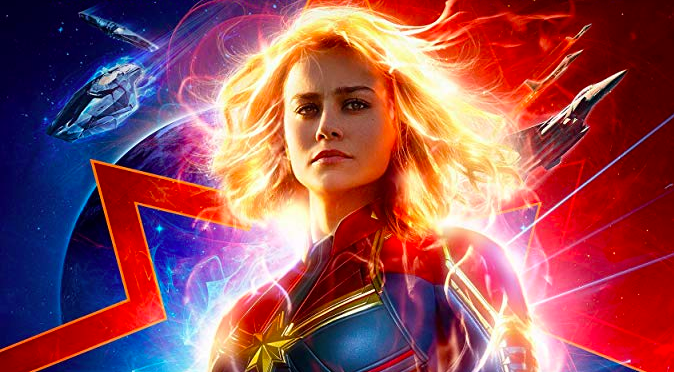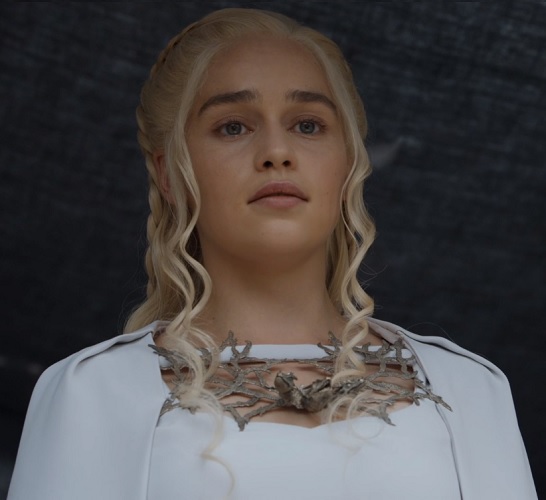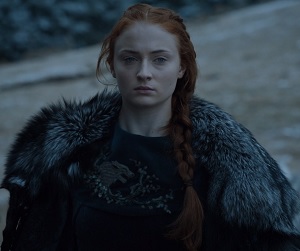I went into Captain Marvel not expecting much – the trailers did nothing to generate excitement for me, instead, doing the opposite. I thought it would be rather boring. I left the theatre happily surprised that I enjoyed it more than I thought I would, but unfortunately, not much of that enjoyment was because of Captain Marvel. She was… fine. But I connected to almost every other character more than I connected to her. Captain Marvel didn’t feel “real”, she didn’t feel lived in; rather, she felt like a Strong Female Character designed by committee.
On the surface, Captain Marvel is THE Strong Female Character, but the storytelling choices the film made don’t always support this. Captain Marvel is a physically strong, confident, witty, powerful woman who… never proves she’s physically stronger than her opponents (even though she’s been training to be a Kree soldier for 6 years), begins the film by whining about not being a Kree soldier yet and having to follow Jude Law’s rules when training, is oddly less witty than the majority of the rest of the film’s cast, and… is actually very powerful and will probably knock Thanos for a loop.
Having Captain Marvel complain about her training was an odd way to introduce us to her character. It shows her as whiney, but also as arrogant (a characteristic I very much dislike in other Marvel characters, such as Phase 1 Tony Stark). And while I understand the feminist point of the final confrontation with Jude Law – where she power-blasts him and then tells him she has nothing to prove to him – from a storytelling point it doesn’t make much sense. Why have the character take the same action both times? Options that would have worked better: 1) Captain Marvel doesn’t power-blast Jude Law in the first scene, and instead just loses, then at the end power-blasts him to prove she’s now more powerful than him; 2) In the final confrontation, she does beat him in hand-to-hand combat without her powers; 2) In the final confrontation, she power-blasts him and then drops a witty, “puny god”-type line afterward.
The feminist aspect of this film was front and center, and, in my opinion, too much so. It felt shoehorned in rather than natural. Captain Marvel has nothing to prove to Jude Law by the end, cool, but she’s supposed to be witty, so why not drop a witty line? Why go with the on-the-nose, “I have nothing to prove to you”? Instead of the feminist message being integrated into the film seamlessly, it was so on-the-nose that it felt out of place.
I get it, Captain Marvel is a woman and sexism exists and is bad, but what does that actually have to do with her character development? Her climax is when she is fighting the Kree AI and sees all the times she fell and then got back up, and she finds her strength and defeats the AI. But not only do the flashbacks to her past throughout the film not affect her as much as we’re told they do, sexism is not why the Kree don’t think she’s ready to be a full soldier. The sexism shown in her flashbacks has nothing to do with how the Kree treat her – the Kree don’t seem to care that she’s a woman and make no mention of this at all when saying she’s not ready to be a soldier (there is even another female Kree soldier in Jude Law’s and Captain Marvel’s squad). In fact, all of the sexism directed toward Captain Marvel happens while she is on Earth, both in her flashbacks and once she returns. So what is the point of including all those instances of sexism toward her? To show how progressive the Kree seem to be compared to the US military?
Captain Marvel is fine, but I think her character suffered from the filmmakers shoehorning in their feminist message when they could have made a bigger impact if they had focused more on making a interesting character who happens to be female.
An example of a interesting female character with a storyline that touches on the sexism she faced that feels completely natural and not shoehorned in comes from this very same movie: Maria Rambeau. Maria was a pilot in the US Air Force and was Carol Danvers’ best friend. Maria mentions how back when she was in the Air Force women were not allowed to fly combat missions which is why she chose to work for Pegasus (the agency both women worked for when Carol Danvers became Captain Marvel). This not only touched on the sexism Maria faced but also set up the “f- yeah!” moment later on when she got to fly combat against the Kree. I was rooting for Maria to kick Kree ass not because I was literally shown all the times she was knocked down and got back up, but because I understood her pain in not being allowed to fly combat (from that one line), and I experienced her joy when she finally did.
This isn’t to say that a film about the sexism women face in the military wouldn’t be interesting – I think it very much would be – but this isn’t a film about a woman dealing with sexism in the military. This is a film about a human/Kree hybrid saving the Skrulls from the Kree. This is a film about how Captain Marvel was lied to by the Kree, who turned out to be the bad guys, and how she then switched sides and fought for the Skrulls. This is a film about a group of leaders fabricating a false narrative that foreigners caused all of their problems, and going to war with them, when really the foreigners are just looking for a home. This is a film about the refugee crisis, with sexism in the military shoehorned in.
Having said all this, I did enjoy Captain Marvel and would watch it again: I think Captain Marvel shined when she was with Fury; I thought Ben Mendelsohn (the Skrull leader) was a standout performance; I actually didn’t see Jude Law’s bad guy turn coming; Maria and Monica Rambeau were great; I liked seeing Agent Coulson back (even if he was underused); and I could watch Fury and Goose all day long. Captain Marvel had the potential to be a great character, but this time it fell flat for me because of the machinations of the filmmakers, but I’m willing to wait and see how she evolves through future films.



